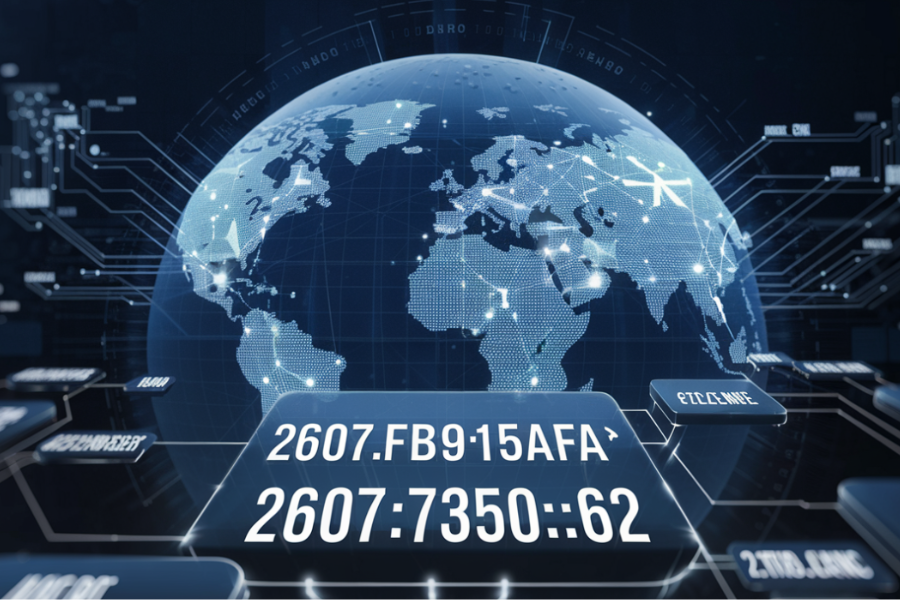Unlocking the Future of Internet Connectivity: The Role of 2607:fb91:15af:7350::62
The IP address 2607:fb91:15af:7350::62 offers a glimpse into the future of internet connectivity, symbolizing the shift from IPv4 to IPv6 as the digital landscape expands. With more devices connected daily, the need for a more robust system has never been greater. This article delves into the significance of IPv6 addresses like 2607:fb91:15af:7350::62 and explains how they are helping shape the future of the internet. By the end, you’ll understand the importance of IPv6 and why it’s the backbone of tomorrow’s web.
Why IPv6 Is Crucial
IPv6 addresses such as 2607:fb91:15af:7350::62 are essential to accommodate the increasing number of devices online. With the IPv4 address pool nearing depletion, IPv6 provides an almost limitless number of addresses, ensuring that every connected device can seamlessly access the internet. Here are some advantages IPv6 brings:
- Expanded Address Space: IPv6 offers a vast number of unique addresses, overcoming the limitations of IPv4.
- Optimized Routing: It improves data routing efficiency across networks.
- Enhanced Security: Built-in security features, including IPsec, offer better protection for encrypted communication.
IPv6, and specifically addresses like 2607:fb91:15af:7350::62, contribute to a more secure, scalable, and future-proof internet.
Understanding the Structure of 2607:fb91:15af:7350::62
At first glance, IPv6 addresses like 2607:fb91:15af:7350::62 might seem complex, but each segment serves a specific function:
- Global Prefix (2607): Identifies the region and network operator.
- Network Segment (fb91:15af): Defines the specific network or service provider.
- Device Identifier (7350::62): Pinpoints the individual device or server.
This structure enables more efficient data routing, ensuring that devices are easily identifiable and secure.
How IPv6 Is Revolutionizing Internet Connectivity
IPv6 brings several upgrades over the older IPv4 system, addressing issues of scalability and performance:
- Unlimited Addressing: Unlike IPv4, which has around 4.3 billion available addresses, IPv6 can accommodate virtually unlimited devices.
- Faster Speeds: With simplified data packet headers, IPv6 ensures quicker and more efficient data transfer, improving user experience.
- Built-in Security: IPv6 includes integrated security protocols, offering better protection against cyber threats.
These features make IPv6, and addresses like 2607:fb91:15af:7350::62, essential to support the internet’s rapid growth.
Supporting the Internet of Things (IoT)
IPv6 is key to the growth of the Internet of Things (IoT), enabling the vast number of devices needed to power smart cities, homes, and industries. Addresses like 2607:fb91:15af:7350::62 offer:
- Scalability: Accommodates millions of IoT devices, each with its unique address.
- Seamless Communication: Facilitates smooth interaction between devices, from home appliances to industrial systems.
IPv6 ensures that as the number of connected devices grows, they can function efficiently and securely.
How 2607:fb91:15af:7350::62 Strengthens Security
Security is a crucial aspect of IPv6, and addresses like 2607:fb91:15af:7350::62 offer built-in protections that are essential in today’s data-centric world:
- Encryption: IPv6 natively supports IPsec, which encrypts data during transmission, reducing the risk of interception.
- Data Integrity: IPsec also ensures that data is not tampered with, adding a layer of protection to internet communications.
The transition to IPv6 provides internet users with stronger, more reliable security measures.
Overcoming the Challenges of IPv6 Adoption
Transitioning from IPv4 to IPv6 presents some challenges, but with proper planning, these can be managed:
- Compatibility: Some older systems may not support IPv6, necessitating updates or upgrades.
- Education: Network administrators need the right tools and training to manage IPv6 systems effectively.
By investing in modern infrastructure and offering training, organizations can smooth the transition to IPv6, making addresses like 2607:fb91:15af:7350::62 more accessible.
Conclusion: The Future of the Internet with 2607:fb91:15af:7350::62
IPv6, represented by addresses such as 2607:fb91:15af:7350::62, is the future of internet connectivity. With its vast addressing capabilities, enhanced security, and improved efficiency, IPv6 is ensuring the continued growth of the internet. As more devices connect, and as the world becomes increasingly reliant on digital technology, IPv6 will be the key to unlocking faster, more secure, and scalable internet experiences.






